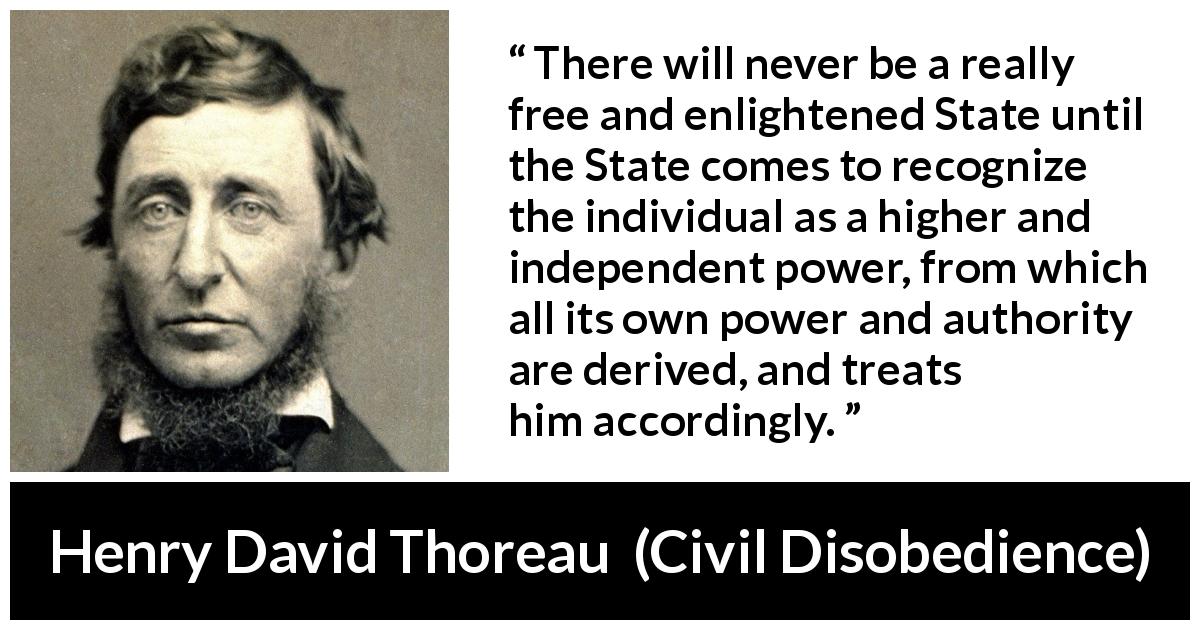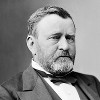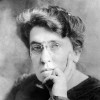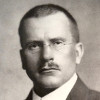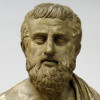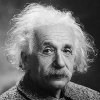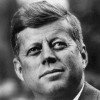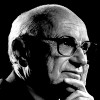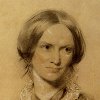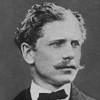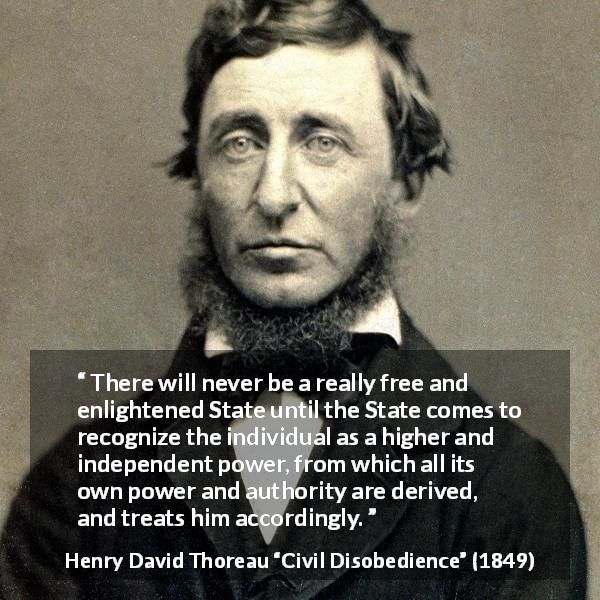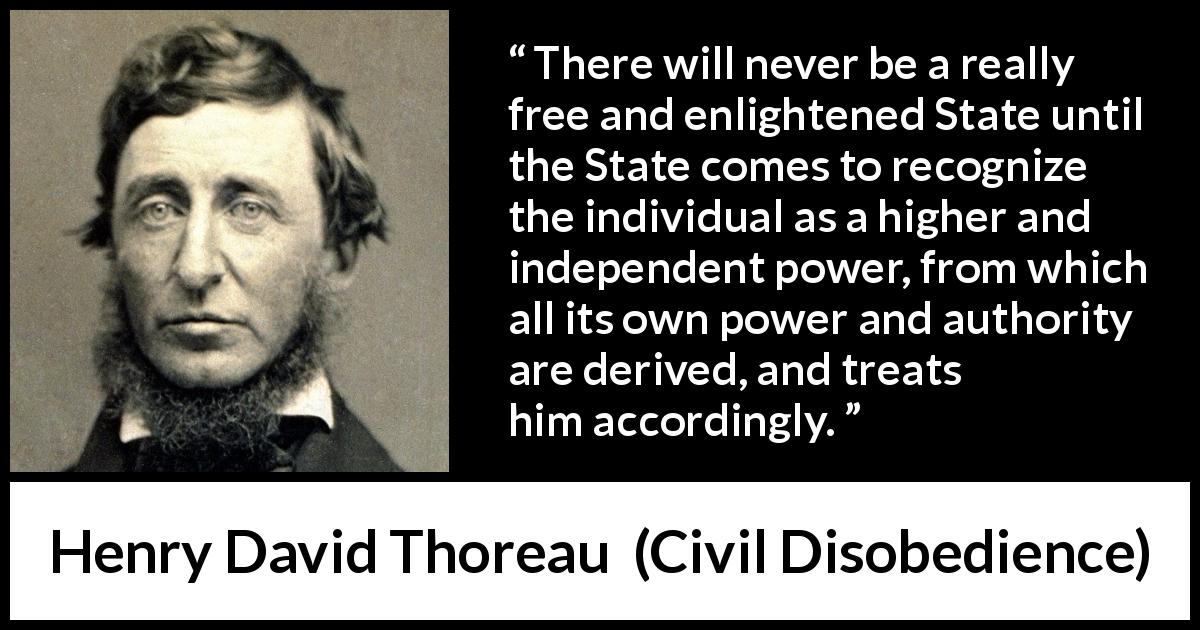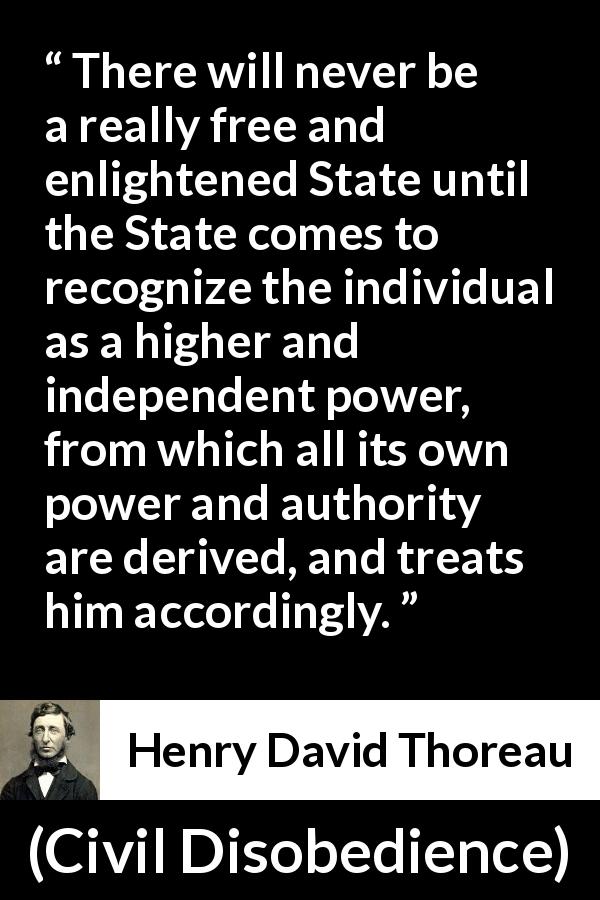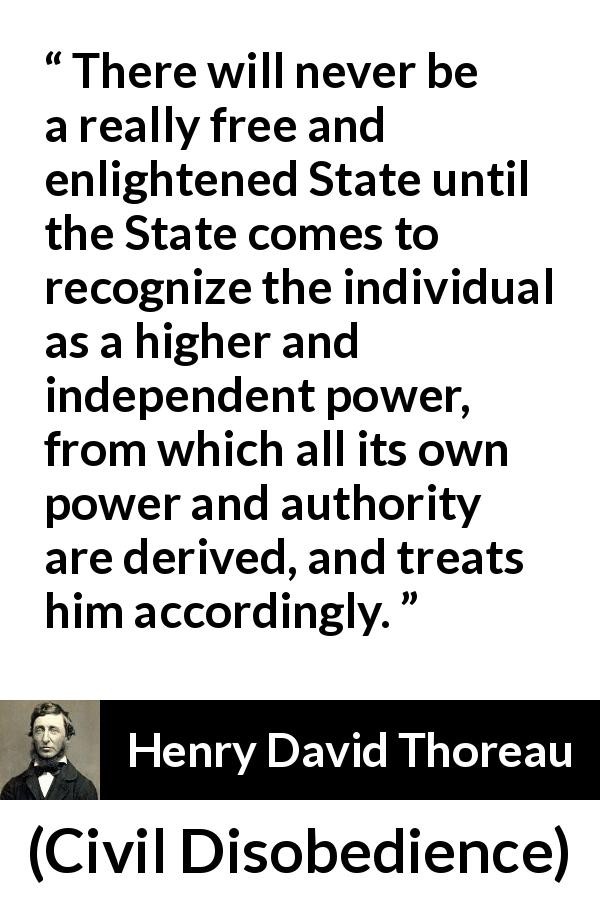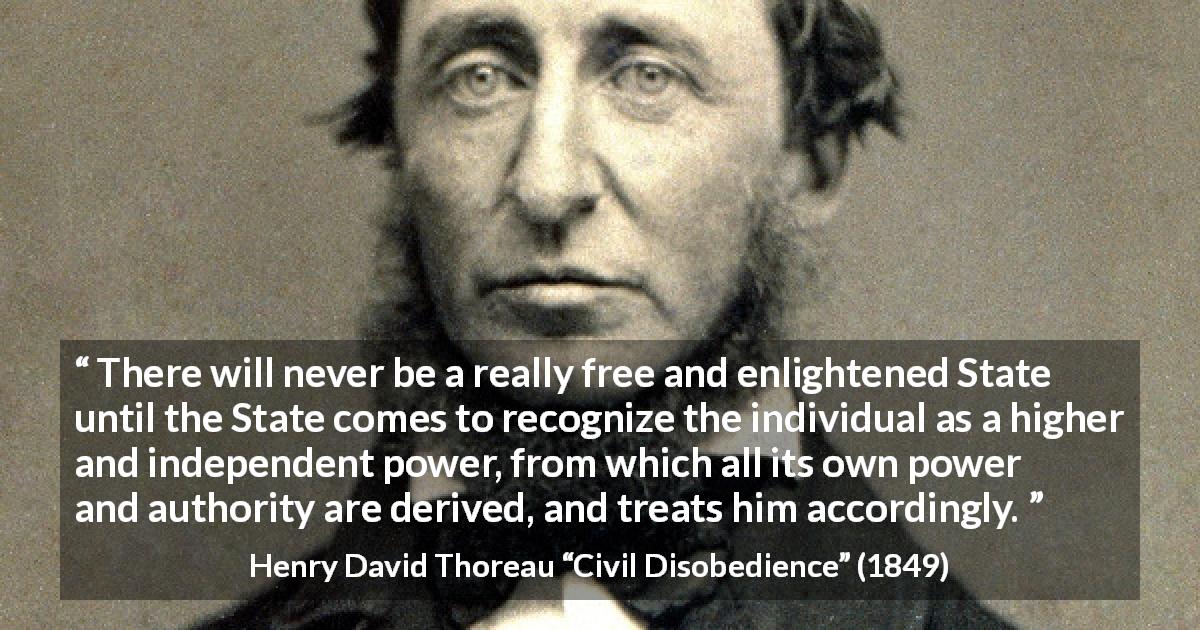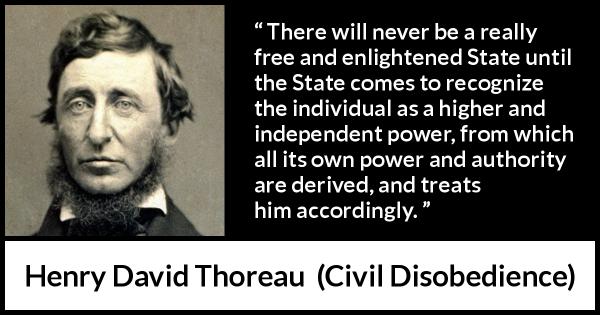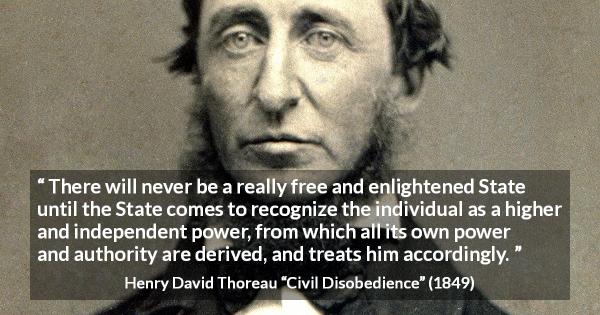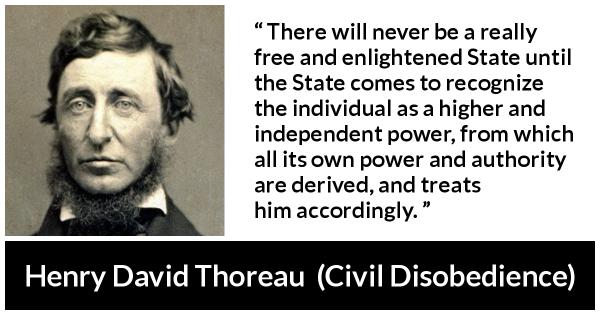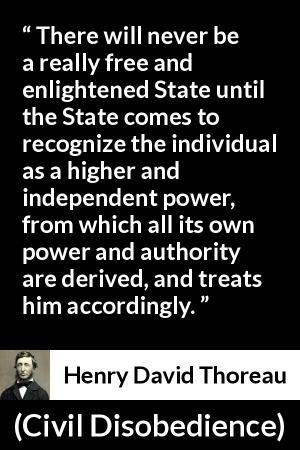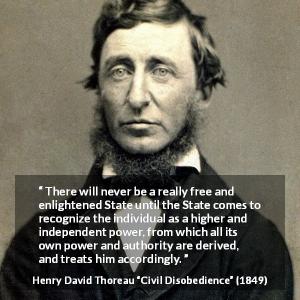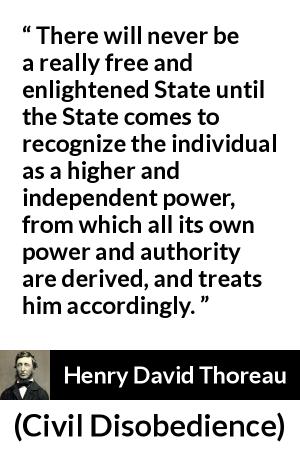“ There will never be a really free and enlightened State until the State comes to recognize the individual as a higher and independent power, from which all its own power and authority are derived, and treats him accordingly. ”
Henry David Thoreau, Civil Disobedience (1849). copy citation
| Author | Henry David Thoreau |
|---|---|
| Source | Civil Disobedience |
| Topic | freedom power individualism state |
| Date | 1849 |
| Language | English |
| Reference | |
| Note | |
| Weblink | http://www.gutenberg.org/files/71/71-h/71-h.htm |
Context
“Even the Chinese philosopher was wise enough to regard the individual as the basis of the empire. Is a democracy, such as we know it, the last improvement possible in government? Is it not possible to take a step further towards recognizing and organizing the rights of man? There will never be a really free and enlightened State, until the State comes to recognize the individual as a higher and independent power, from which all its own power and authority are derived, and treats him accordingly. I please myself with imagining a State at last which can afford to be just to all men, and to treat the individual with respect as a neighbor; which even would not think it inconsistent with its own repose, if a few were to live aloof from it, not meddling with it, nor embraced by it, who fulfilled all the duties of neighbors and fellow-men.”
source
